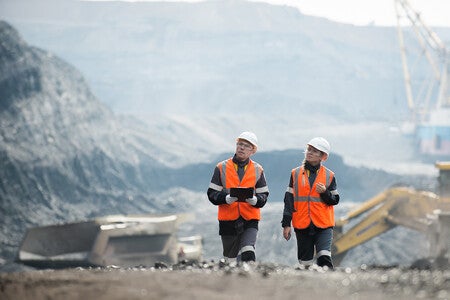If you’ve been keeping an eye on minerals due diligence, buckle up — there are some significant changes on the horizon that you need to know about. The Responsible Minerals Initiative (RMI) has voted to expand the scope of the Extended Minerals Reporting Template (EMRT), and it’s going to impact how you collect and report data on minerals in your supply chain.
What’s Changing?
More Minerals Under the EMRT
Originally, the EMRT was your go-to template for transparency on cobalt and mica. But starting in April 2025, it’s stepping up its game. The EMRT will now include copper, natural graphite, lithium, and nickel — all minerals that fall under the due diligence obligations of the EU Batteries Regulation. That means you’ll need to start collecting and transmitting data related to these additional minerals.
Say Hello to the Additional Minerals Reporting Template
Remember the Pilot Reporting Template (PRT)? Well, it’s graduated from its pilot phase and has a new name: the Additional Minerals Reporting Template (AMRT). This isn’t just a name change. The AMRT is now an official tool you can use to support due diligence on minerals outside the CMRT (the 3TGs) and EMRT (EU Batteries Regulation).
Why This Matters to You
Expand Your Responsible Minerals Program
With these changes, it’s time to revisit the scope of your responsible minerals program. The inclusion of new substances like copper, natural graphite, lithium, and nickel in the updated EMRT means your program requires expansion to address these additions. New suppliers might need to be included, and existing ones could find themselves juggling multiple due diligence requests. It’s not just about ticking boxes; it’s about ensuring your supply chain is transparent and ethical by adapting to the expanded requirements of the updated templates.
Prepare for Growing Due Diligence Obligations
If you think adapting to new templates is challenging, wait until the EU Corporate Sustainability Reporting Directive (CSRD) and the Corporate Sustainability Due Diligence Directive (CS3D) come into effect. Templates aren’t the only forces driving scope expansion for your program. The CS3D and CSRD are set to accelerate this trend, requiring due diligence on all relevant commodities you source from your supply chain. The scope is only going to grow, so being proactive now will save you headaches later. You have to be prepared for these comprehensive obligations.
Avoid Supplier Fatigue
The truth is that bombarding your suppliers with multiple requests can lead to supplier fatigue, compromising the quality of the data you receive. Templates are an important first step in helping your suppliers, as they can use the same standardized template across their customer base, creating efficiencies. However, templates alone aren’t enough. You need to knock down silos across your organization to ensure you’re not sending duplicate requests. Work closely with your suppliers and coordinate internally to get high-quality information without overwhelming them. Building strong relationships now will pay off when reporting requirements become even more demanding.
Don’t Miss Our Webinar Series on Responsible Sourcing!
Do you source minerals from the Democratic Republic of the Congo (DRC) or other high-risk areas? We’ve got something you won’t want to miss. Join our two-part webinar series to get ground-level insights into the challenges of upstream validation in the DRC and learn how to connect upstream and downstream efforts in your supply chain.
Proactive Steps You Should Take Now
- Adjust your data collection to see which suppliers are now in scope of requirements and which clients will be interested in this information.
- Start conversations with your suppliers about these changes. The earlier they know what’s coming, the more prepared they’ll be.
- Keep an eye on upcoming regulations like the CSRD and CS3D. Knowledge is power, and staying informed will help you adapt quickly.
- Use this time to strengthen your relationships with suppliers. A collaborative approach will make future due diligence processes smoother for everyone involved.
The Bottom Line
Change is never easy, but it’s the only constant — especially in the world of minerals due diligence. By preparing now, you can turn these upcoming challenges into opportunities for growth and leadership in responsible sourcing.
For more information on how Assent can help you proactively navigate changes coming your way, Book a demo.














